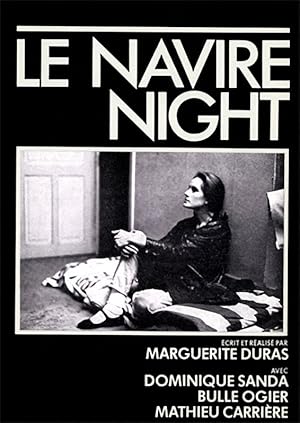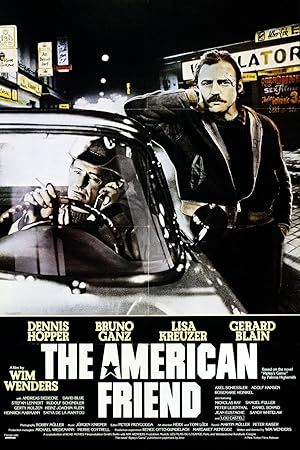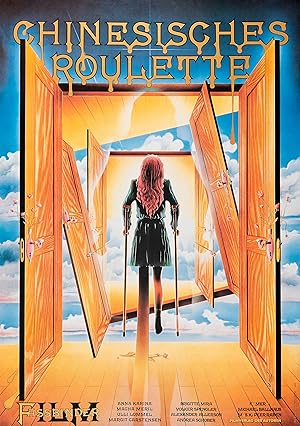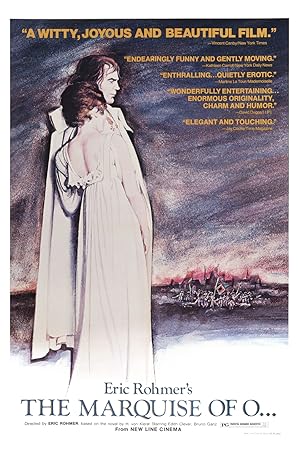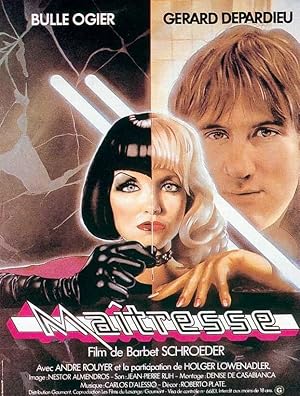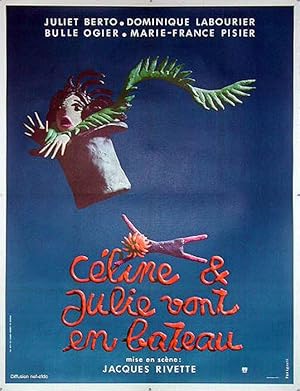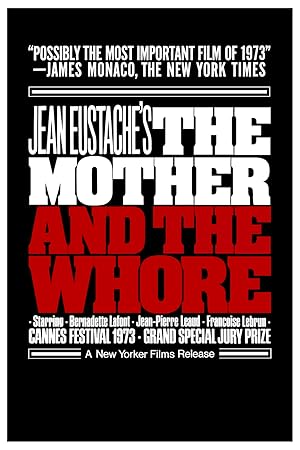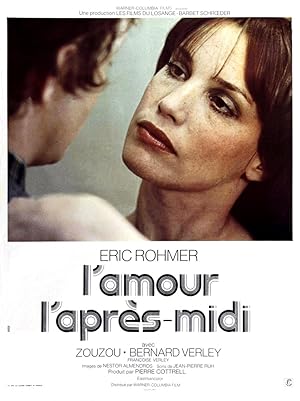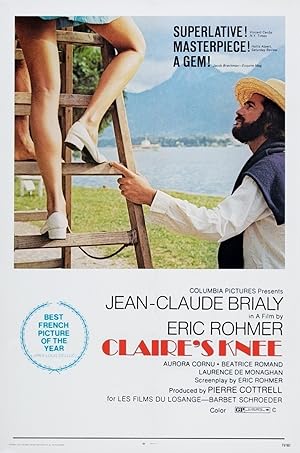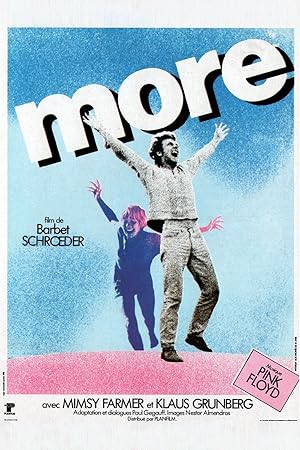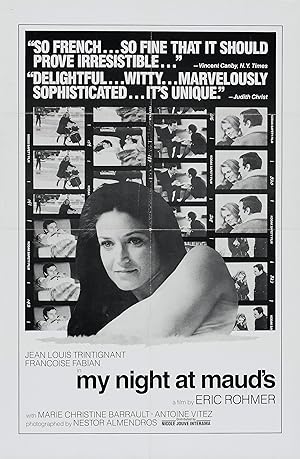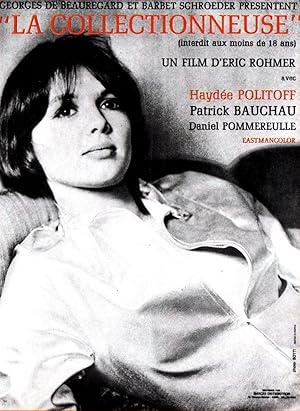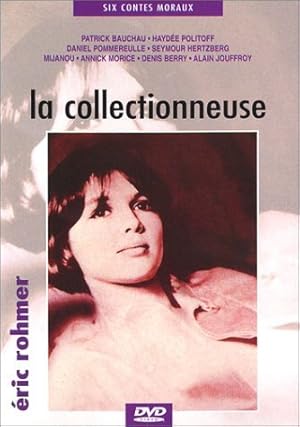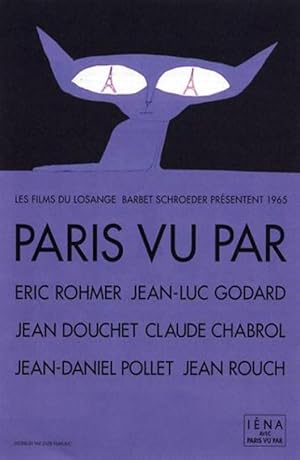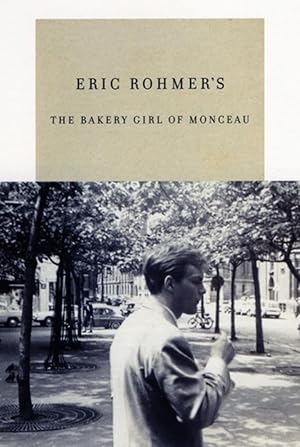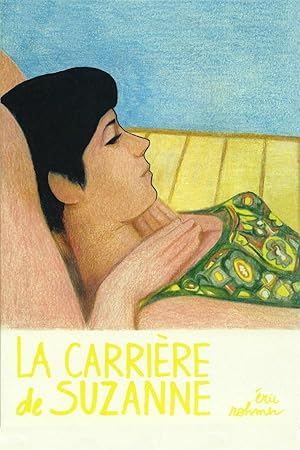Films & Shows from Les Films Du Losange
You’re now browsing page 3, where we continue to showcase even more remarkable titles produced by Les Films Du Losange. If you’ve already discovered some standout works on previous pages, now’s the perfect time to delve deeper and find your next favorite. Keep exploring and enjoy the journey!
Le Navire Night (1979)
0
Le Navire Night is a story of love and desire sustained and nourished through sound waves. The film’s voice-over tells the story of a woman, terminally ill with leukemia, living in isolation at her wealthy father's villa, and a man working night shifts at a telephone company. They have never met in person.
The American Friend (1977)
0
Tom Ripley, an American who deals in forged art, is slighted at an auction in Hamburg by picture framer Jonathan Zimmerman. When Ripley is asked by gangster Raoul Minot to kill a rival, he suggests Zimmerman, and the two, exploiting Zimmerman's terminal illness, coerce him into being a hitman.
Chinese Roulette (1977)
0
A husband and wife lie to each other about their weekend travel plans, only to both show up at the family's country house with their lovers.
The Marquise of O (1976)
0
A German Marquise has to deal with a pregnancy she cannot explain and an infatuated Russian Count.
Maîtresse (1976)
0
After breaking into a house he believes is empty, thief Olivier is caught by the owner, Ariane, who turns out to be a dominatrix. Improbably falling for her, Olivier returns periodically, and an impulsive romance blossoms despite Ariane's profession. Soon Olivier becomes more familiar with her work, even joining in on occasion. However, when he discovers that Ariane has a son, he attempts to "fix" her, hoping to give her a better life.
Céline and Julie Go Boating (1974)
1
Julie, a daydreaming librarian, meets Céline, an enigmatic magician, and together they become the heroines of a time-warping adventure involving a haunted house, psychotropic candy, and a murder-mystery melodrama.
The Mother and the Whore (1973)
0
Aimless young Alexandre juggles his relationships with his girlfriend, Marie, and a casual lover named Veronika. Marie becomes increasingly jealous of Alexandre's fling with Veronika and as the trio continues their unsustainable affair, the emotional stakes get higher, leading to conflict and unhappiness.
Love in the Afternoon (1972)
0
The last of Rohmer's Six Moral Tales. Frederic leads a bourgeois life; he is a partner in a small Paris office and is happily married to Helene, a teacher expecting her second child. In the afternoons, Frederic daydreams about other women, but has no intention of taking any action. One day, Chloe, who had been a mistress of an old friend, begins dropping by his office. They meet as friends, irregularly in the afternoons, till eventually Chloe decides to seduce Frederic, causing him a moral dilemma.
Claire's Knee (1970)
1
On the eve of his wedding, on holiday on the Lake Annecy shore, a career diplomat visits an old acquaintance, perhaps a former girlfriend. Through her he meets an intense teenager, Laura, and then lusts after her sister, Claire. Whilst Laura attempts to flirt with him, his fantasy becomes focused on wanting to caress Claire's knee.
More (1969)
0
A German student, Stefan, now finished with his studies, hitchhikes to Paris. There he meets a free-spirited American girl, Estelle, who he follows to Ibiza. The two begin a sad and dark path into heroin addiction.
My Night at Maud's (1969)
0
The Catholic Jean-Louis runs into an old friend, the Marxist Vidal, in Clermont-Ferrand around Christmas. Vidal introduces Jean-Louis to the modestly libertine, recently divorced Maud and the three engage in conversation on religion, atheism, love, morality and Blaise Pascal's life and writings on philosophy, faith and mathematics. Jean-Louis ends up spending a night at Maud's. Jean-Louis' Catholic views on marriage, fidelity and obligation make his situation a dilemma, as he has already, at the very beginning of the film, proclaimed his love for a young woman whom, however, he has never yet spoken to.
La Collectionneuse (1967)
0
A bombastic, womanizing art dealer and his painter friend go to a seventeenth-century villa on the Riviera for a relaxing summer getaway. But their idyll is disturbed by the presence of the bohemian Haydée, accused of being a “collector” of men.
A Modern Coed (1966)
0
Eric Rohmer directs this short documentary that narrates the presence of women in French universities as of the time of its release -- 1966. During the film's short run, the narrator continues to point out that during the advent of World War II, only 21,000 women attended college and made only a 30 % of the student body, a number that by the 1964-1965 school year had passed the 120,000 mark. Instead of opting to live according to what was expected of them, now they were joining the work force, trading in aprons for lab jackets and becoming professionals even after getting married.
Six in Paris (1965)
0
Six vignettes set in different sections of Paris, by six directors. St. Germain des Pres (Douchet), Gare du Nord (Rouch), Rue St. Denis (Pollet), and Montparnasse et Levallois (Godard) are stories of love, flirtation and prostitution; Place d'Etoile (Rohmer) concerns a haberdasher and his umbrella; and La Muette (Chabrol), a bourgeois family and earplugs.
The Bakery Girl of Monceau (1963)
0
Early new wave effort from Rohmer, which was the first of his six moral tales. It concerns a young man who approaches a girl in the street, but after several days without seeing her again, he becomes involved with the girl in the local bakery. Eventually, he has to choose between them when he arranges dates with them on the same day.
Suzanne’s Career (1963)
0
In the second of Rohmer's moral tales, he examines the relationship between two friends and a girl who at first appears easily exploited. It is a complex tale of feelings and misconceptions, acted out within the head of the main character, as part of Rohmer's attempt to more easily simulate the mindscape quality of literature within a film.
